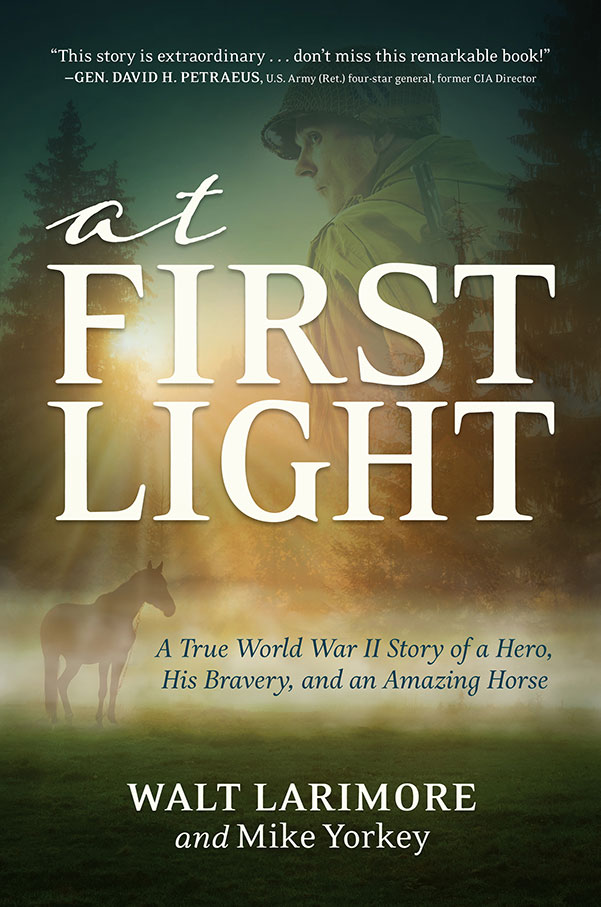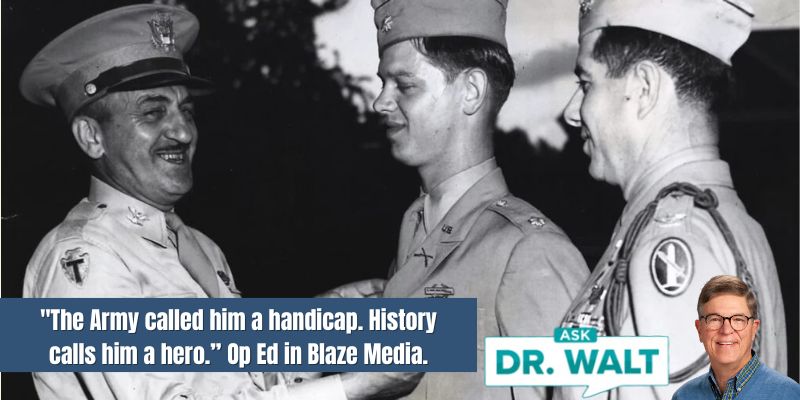
August 13, 1944 — Phil’s final letter home before D-Day
August 13, 2024
“Ask Dr. Walt” in Today’s Christian Living “Laughter is the Best Prescription” (Part 2)
August 14, 2024By August 13, [almost all of the ships were] underway, part of a naval force totaling some 1,000 ships, all committed to landing some 151,000 troops, including almost 41,000 French forces, and some 21,400 vehicles, including tanks and tank destroyers.[1]

{The armada] then sailed through the Strait of Bonifacio, between Corsica and Sardia the next day. That evening the 15th and 7th Regiments debarked at Ajaccio on the west side of Corsica for the planned staging, before embarking for the target area on August 14.[2]
~~~~~
At two P.M. on August 13, under clear skies on a calm sea, Catoctin,[3] Bayfield, and more than two dozen transports eased away from the docks and built to twelve knots. An escourt of sixteen warships joined this final convoy as it steamed from the Naples anchorage. A witness thought of Johh Masefiled’s lines from Gallipoli: “All that they felt was a gladness of exultation that their young courage was to be used.”
Vesuvius had begun to recede in the distance when a commotion on deck caught Hewitt’s attention. A British admiral’s barge, making for the port from the island of Ischia, could be seen weaving among the outbound ships. A stubby figure with pink cheeks stood in the forepeak, disdaining a handhold and wearing a light tropical suit beneath an enormous sun helmet. Abruptly for soldiers and sailors crowding Catoctin’s rails a cry went up: “It’s Churchill!” So it was: with a smile he doffed his ten-gallon helmet, wispy hair tossing in the breeze, then raised his right hand to flash the famous V with his fingers. The men huzzahed until he slid from sight in their wake.
He was traveling under the improbable nom de guerre of Colonel Kent, as if a phony name and a big hat could render him inconspicuous. Ostensibly Churchill was on a fortnight’s bathing holiday in southern Italy, wallowing “like a benevolent hippo” at Capri’s Blue Grotto and in various Tyrrhenian coves around Naples while following the heartening news from Normandy in his portable map room. Yet he also had come to keep a pale eye on an enterprise he still bitterly opposed, and which had churned up as much enmity within the Anglo-American alliance as any episode of the war.[4]
~~~~~
[1] Heefner. Dogface Soldier, 190.
[2] Champagne, 78.
[3] The flagship of Vice Admiral H. Kent Hewitt, who would command the invasion until ground forces were well inland (Atkinson, The Guns at Last Light, 190).
In case you haven’t read or listened to Dad’s book, you can learn more or order it here.
© Copyright WLL, INC. 2024.



